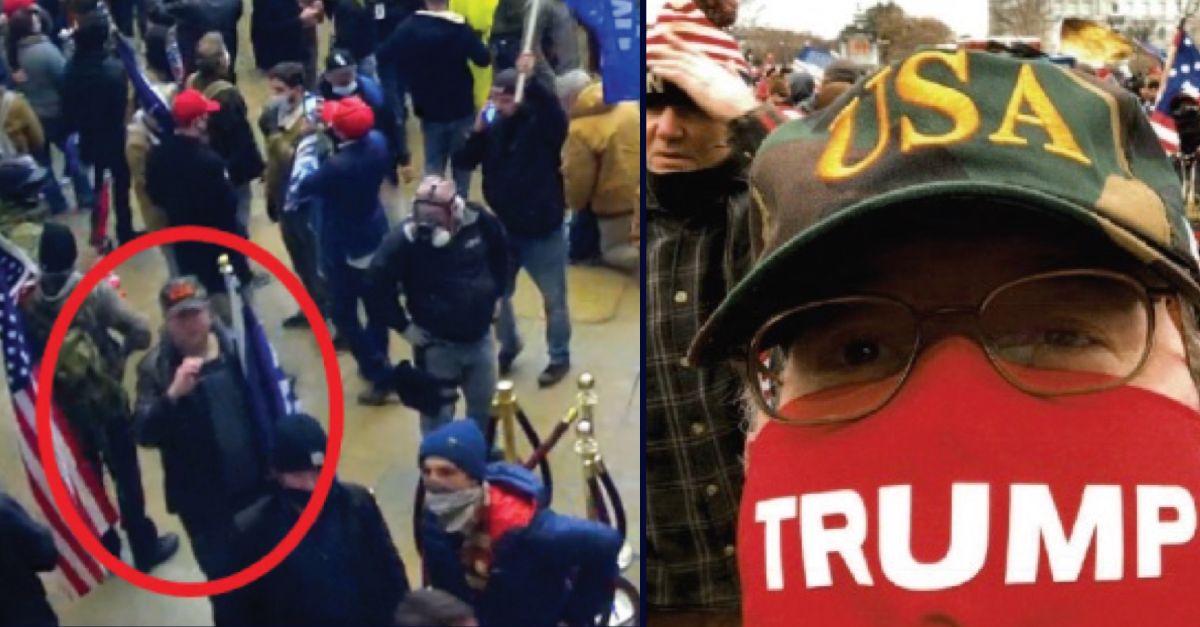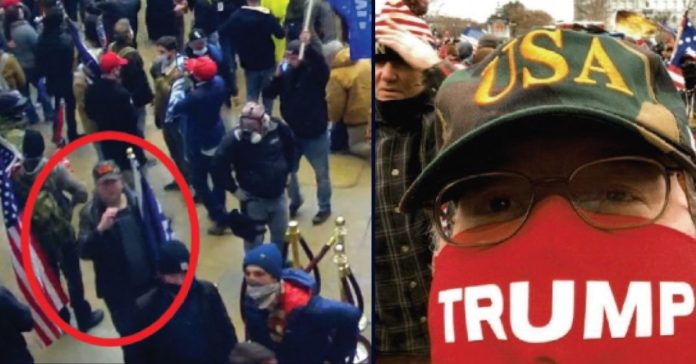
Matthew Martin at the U.S. Capitol on Jan. 6, 2021 (DOJ).
A New Mexico man who was cleared of criminal charges in connection with the Jan. 6 riot at the U.S. Capitol is not entitled to have the record of his arrest and trial expunged, a federal judge in Washington, D.C., has ruled.
U.S. District Judge Trevor McFadden on Friday rejected the request to eradicate the record of Matthew Martin, who previously referred to the Capitol riot as a “magical day.”
McFadden found Martin not guilty of multiple misdemeanors following a bench trial three years ago.
In a nine-page opinion, McFadden, who President Donald Trump appointed during his first term, reasoned that despite being “fully acquitted” of the Jan. 6 charges, federal appeals courts have previously held that an individual must show evidence that their rights were violated before a district court can consider expungement. Here, Martin did not even “allege a violation of a statutory or constitutional right,” the judge wrote.
Instead, Martin asserted that his record was clean before and after the trial, he was acquitted after an adjudication on the merits, his case is associated with the “most highly publicized criminal prosecution in the country”s history,” and his FBI background check information is now “inaccurate and prejudicial without serving any proper purpose.”
He argued that previous cases had established a “right not to be adversely affected by government records when their information is “inaccurate,” “acquired by fatally flawed procedures,” or “prejudicial without serving any proper purpose.”
But none of those reasons met the legal threshold for his record to be expunged, McFadden found.
Love true crime? Sign up for our newsletter, The Law&Crime Docket, to get the latest real-life crime stories delivered right to your inbox.
“In sum, Martin has not attempted to show a statutory or constitutional violation during his arrest, trial, or conviction,” McFadden wrote. “So this Court has no violation on which to rest the equitable remedy of expungement. His motion is denied.”
The court also noted that while Martin claimed he was fired from his job immediately after being charged “because of his association with Jan. 6th events,” he previously indicated that he was “not requesting expungement for employment reasons.”
As Law&Crime previously reported, McFadden in April 2022 found Martin not guilty on charges that included entering a restricted building and disorderly conduct in a Capitol building. The judge said federal prosecutors failed to prove the “requisite scienter” for the crimes “in large part because a Capitol police officer arguably appeared to allow Martin into the building.”
Following the two-day trial, McFadden reportedly said that despite multiple clues that the Capitol grounds and building were restricted, Martin’s belief that he had permission enter the building was “plausible” because police officers didn’t try to stop him.
In a trial brief, prosecutors said that Martin went to the Capitol from his hotel room at some point after the first breach of the building had occurred. On his way there, he passed a line of police cars, signs announcing that areas of the Capitol grounds were closed, and smashed windowpanes at the Rotunda doors. Alarms that prosecutors described as “piercingly loud” could be heard on video recordings Martin made on his phone.
Nevertheless, Martin walked into the Rotunda, passing police officers who were standing on either side of the doorway. According to prosecutors, Martin was inside the building for around 10 minutes. He recorded footage on his cellphone, and although he didn’t engage in any violence, he did join a crowd that was “facing down officers” before he left, prosecutors said.
That evening, Martin texted with his supervisor.
“You can’t overrun the capital [sic] building,” the supervisor said, according to court filings.
“Actually you can, rather easily I might add,” Martin responded. “Not as much security as you think. Our numbers were freaking huge. They were not prepared.”
In announcing his verdict, McFadden reportedly described Martin’s conduct at the Capitol as “minimal and non-serious,” noting that he didn’t try to crowd police, protest, or wave his Trump flag inside the building. The judge appears to have weighed the fact that Martin didn’t interfere with officers fighting back rioters as a factor in the defendant’s favor, and not as yet another indication to Martin that he shouldn’t have been there.
Martin was reportedly unapologetic at trial, describing Jan. 6 as “magical” and stating that he did not regret traveling to Washington, D.C., for the pro-Trump rally.
Martin was the first accused Capitol rioter to be fully acquitted of charges in connection to Jan. 6.
Marisa Sarnoff contributed to this report.

